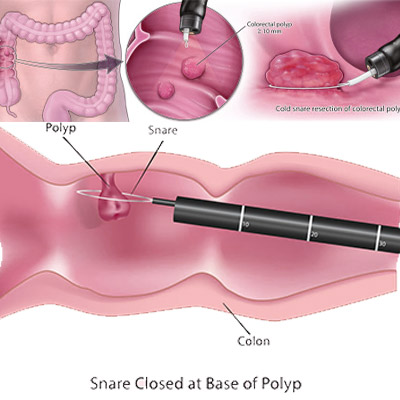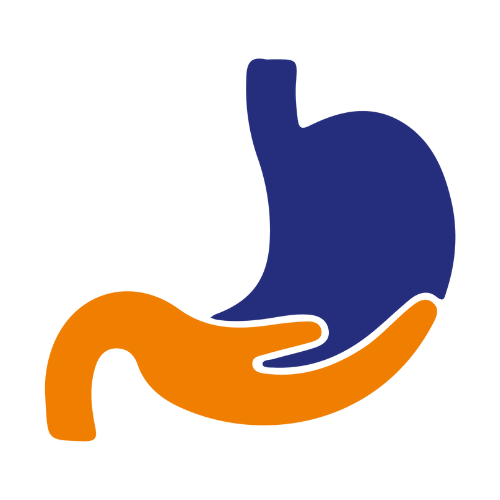
Polypectomy
What is
Polypectomy?
A polypectomy is a procedure used to remove polyps from the inside of the colon, also called the large intestine. The two most common types of polypectomy are uterine polypectomies and colon polypectomies. A uterine polypectomy is a procedure to remove polyps in the endometrial tissue, the tissue that lines the inside of the uterus. A colon polypectomy involves removing polyps in the colon.

Why is Polypectomy
performed?
People who have symptoms related to their polyps, such as pain or bleeding, bowel irregularities usually need to have the polyps removed. Polypectomy helps identify whether the growth is cancerous or not.The doctor determines if a polypectomy is required or not based on certain factors such as:
- Size of the polyp
- Number of polyps found
- Location of the polyp
- Whether or not they are cancerous
In case of patients with uterine polyps, there may not be any special instructions. However in case of patients undergoing colon polypectomy, it is important for them to have an empty colon. The doctor may recommend a laxative or enema for the same. In some cases, both a laxative & enema may be required. The patient would also need to have a clear liquid diet ( water, clear juices without pulp etc) for 24 hours prior to surgery.
How one should prepare?
What to Expect During & After the Procedure
What Happens After Procedure?
Recovery is generally quick. Minor side effects such as gassiness, bloating, and cramps usually resolve within 24 hours. With a more involved procedure, a full recovery can take up to two weeks.You shouldn’t drive for 24 hours following a polypectomy.
Your doctor will give you some instructions on how to care for yourself. They may ask you to avoid certain drinks and foods that can irritate your digestive system for two to three days after the procedure. These can include:
- Tea
- Coffee
- Soda
- Alcohol
- Spicy foods
Your doctor will also schedule you for a follow-up colonoscopy. It’s important to check that the polypectomy was successful and that no further polyps have developed.
What to Expect During the Procedure?
A colonoscopy is offered routinely for people who are over 50 years old to check for any growths that could be indicative of cancer. Once the patient is sedated, he or she is made to lie on the examining table with knees folded towards the chest. The doctor will then insert a thin and flexible colonoscope, with a camera at its tip, into the rectum. If your doctor discovers polyps during your colonoscopy, they’ll usually perform a polypectomy at the same time.
There are several ways in which a polypectomy can be performed. Which way your doctor chooses will depend on what kind of polyps are in the colon. The procedure can be done relatively quickly. It usually only takes between 20 minutes to 1 hour, depending on any necessary interventions.
Once a polyp has been removed, it’ll be sent to a pathology lab to test if the polyp is cancerous. The results usually take one week to come back, but sometimes can take longer.
What are the risks of Polypectomy?
The risks of a polypectomy can include perforation of the bowel or rectal bleeding. These risks are the same for a colonoscopy. Complications are rare, but contact your doctor immediately if you have any of the following symptoms:
- Fever or chills, as these could indicate an infection
- Heavy bleeding
- Severe pain or bloating in your abdomen
- Vomiting
- Irregular heartbeat
- Dizziness
- Adverse reaction to the sedative
Contact us
Call Us
Our Location
A-Ground Floor, Lancelot Apartment, Opposite Kalyan Jewellers S.V. Road, Borivali West, Mumbai, Maharashtra 400092.
